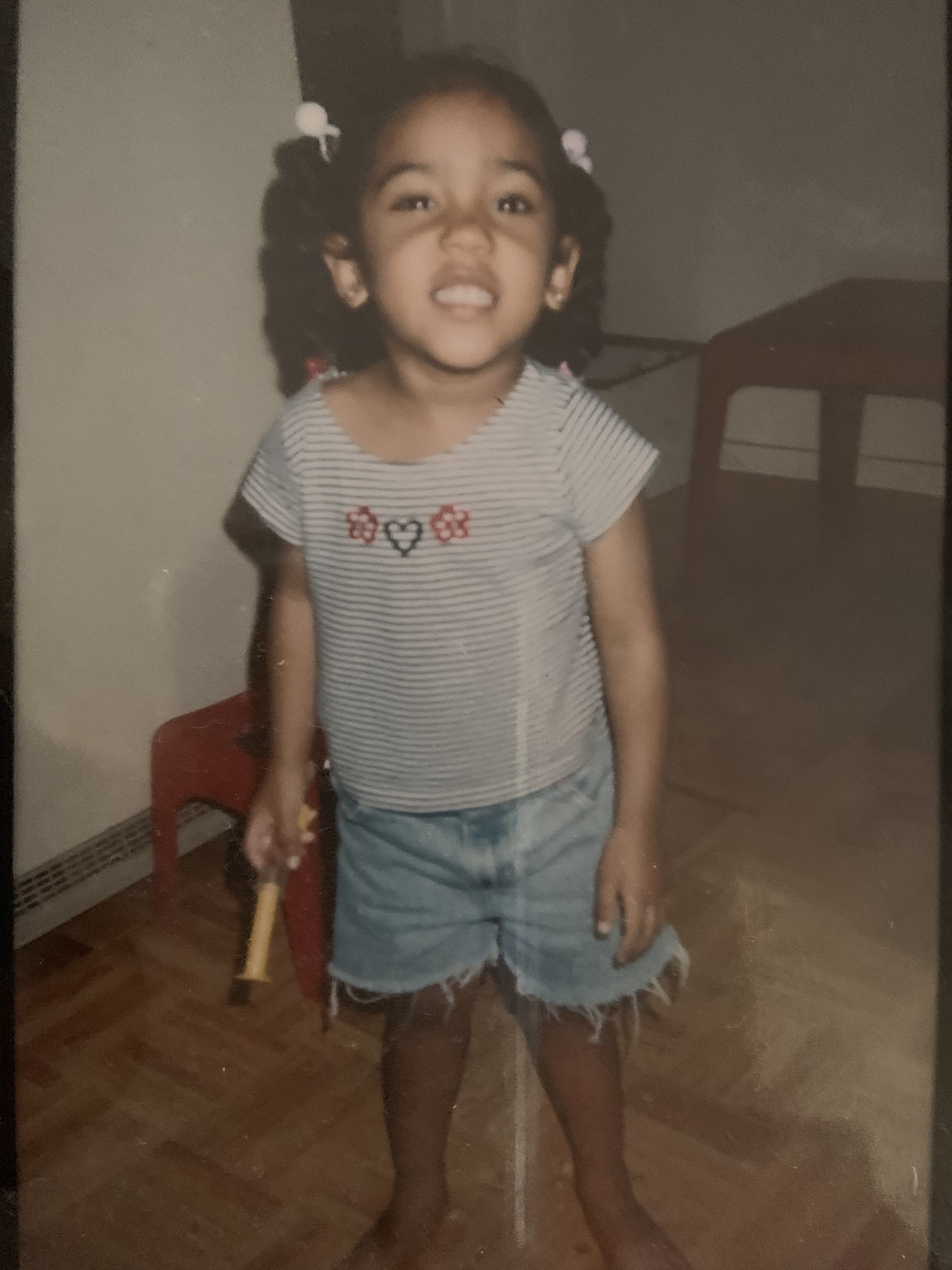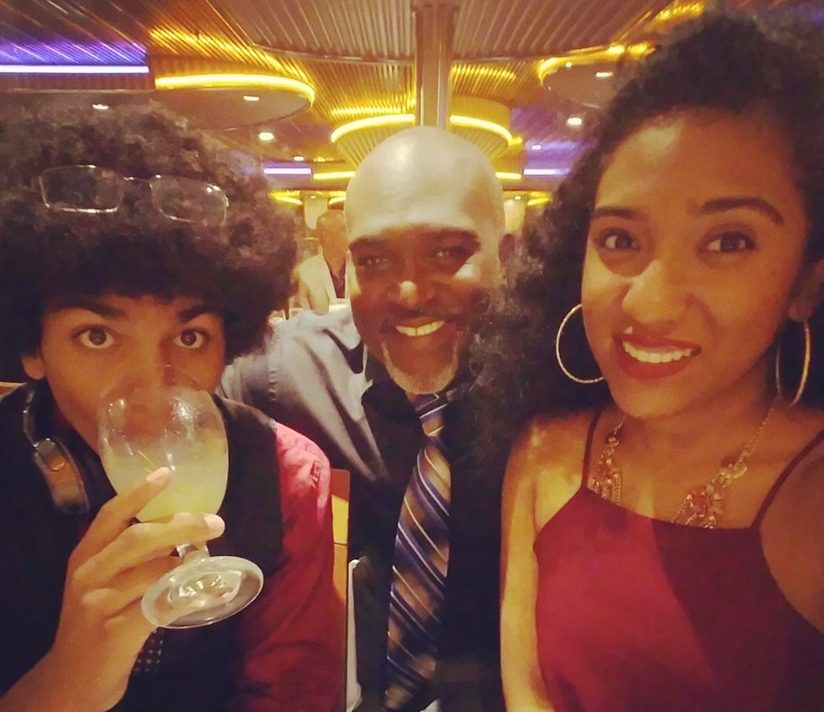
The Eastern Coachella Valley is a beautiful community, filled with deep and rich culture that is heavily influenced by Mexico. When you walk into the town, you are greeted by little mom and pop shops that play uplifting music, people talking and laughing on the sidewalks, and traditions that are what make the Eastern Coachella Valley an unforgettable place. I moved to this valley from Bakersfield California at about 8 or 9 years old, and fell in love with the energy that came from the palm trees that seemed to suck me in and embrace me. Believe it or not, this place was far more magical than Disneyland could ever be. After a few short months and finally adjusting to the area, something inside of me had changed. I would walk around places with my mother and little brother, and couldn’t help but feel that something was very off. I began to pay attention to more interactions I would have with community members, and discovered that my appearance was causing this feeling.
I had no idea that being born to a Mexican Mother and a Black father would make my experience in the valley one that would teach me a lot about myself, and how I would see the world. But it did. I remember being enrolled in elementary school, and how accepting and welcoming the other students were of my differences. They never made me feel weird or bad, they just simply accepted me for me. It wasn’t until middle school that I was met with issues about my race.
The two year transition between elementary school and high school was an absolute nightmare. I had very few friends because my hair wasn’t like everyone else’s, and I was very dark compared to everyone else. I spent a majority of the time either by myself, or talking to the women on yard duty because making friends was something really hard to do. If it weren’t for my best friend Ruby, I don’t know how I would have made it through. During class, students would try to throw things in my hair, avoid interacting with me, and even ask me questions like “Why are you offended when people say ‘nigger’? It shouldn’t matter what people say.”

One story that sticks with me was during a class period when my friend and I were listening to a song in spanish. I explained how it had been one of my favorite songs, and another girl said “You don’t know that song, stop lying.” Not sure if she was joking or not, it still stood out in my mind that my Mexican identity was up to question simply because of the difference in my appearance. Much of the time, I had no one come to my defense when I tried to stand up for myself and explain that I was indeed Mexican. The idea that a person could be more than one race was absolutely taboo, and nonexistent. I remember coming home from school trying to hold back tears because of how hurtful it was to experience that. I never knew how to explain this to my parents, so I kept it to myself. After that experience, I felt a sense of resentment toward this community, and wanted to completely disconnect myself from it. At a young age, I had experienced a prejudice and was a victim of colorism.
Within the Eastern Coachella Valley and similar to other Latinx communities there is a sense eliteness in terms of those who are lighter skinned, compared to those who are darker. On every novela or news station, the people have light skin, colored eyes, and blonde hair. Very rarely do you see a dark person, unless they are playing a maid, a criminal, or they are the butt of a joke. Dark skin is associated with being ugly, not intelligent, and violent; and this greatly affects darker skinned Mexicans. And being black is even worse. I’m pretty sure we all have that one family member that always made remarks about people being dark, or they completely hated black folks as a whole. This isn’t new. And as a young child growing up, it made no sense to me that the individuals from my own community couldn’t accept me or believe my race SIMPLY because of the color of my skin. It didn’t matter if I knew Spanish or not, the simple fact that I didn’t look “Mexican” was enough for individuals to look down upon me and treat me as a lower-class citizen. And so for a long time, I denied the Mexican part of myself, because acceptance was something I felt I could never get. As a result, I claimed my identity as a Black woman, and stuck with it. Despite being raised with my Mexican cousins, listening to music in Spanish, and speaking Spanish, I was Black when I left my house.
When I got to high school, I took on my identity as a Black Woman and completely rolled with it. For all four years, I wouldn’t speak in Spanish in class, I wouldn’t dance along to music in Spanish, and I would hold my breath during funny jokes being told in Spanish (I didn’t want to give myself away). Because I decided that I would be confident in my Black identity, I had made many friendships that would last a lifetime. I was okay with this for a little while, but eventually, I began to feel a sense of incompleteness. It didn’t seem right that I was only accepting one side of myself.
So when I graduated high school, it was time for me to make one more change. When I got accepted into college, I made a promise to myself that I was not going to hide my Mexican side. I joined latinx clubs, attended latinx events, and even spoke Spanish (which was something that I was completely afraid to do). I would no longer hold back or hide who I was, because I knew that the person I wanted to be could never exist if I kept hiding. And at the end of the day, it didn’t matter if people believed I was Black and Mexican or not, because my truth was worth living in. And I am proud to say that I am both Black and Mexican, I love both of my cultures, and nothing will stop me from living the honest truth that God has so blessed me with.
After graduating with two degrees in theatre and dance, the views of myself and the Eastern Coachella Valley had changed, so coming back to this area was a very different experience. I didn’t feel nervous about going to certain places, and I am very open about correcting behavior if I need to. Fortunately, I haven’t had to do that very much because I do believe that there is a progression that is happening within this valley. The younger generation is becoming much more accepting of other identities, and they are more open to addressing problematic thoughts and ideals that they’re family members may try to put on them. I am proud to say that there are more advocates for change, and that there is an acknowledgement of colorism and prejudiced ways of thinking. Could there be more changes? Absolutely. But I am proud to see the progress that is being made every day.
If I could go back and tell young Ayanna anything, I would tell her that she is absolutely beautiful, intelligent, and she doesn’t need to be afraid. That she was fiercely and beautifully made, and that her culture was something she always needed to hang on to. She did not have to hide from anyone, because the world needed to see her live in her truth. And for anyone else that may be dealing with this, it is important to remember that there is absolutely nothing wrong with being different. In fact, if anything, differences are what make a picture unique. I believe this generation will be the change that we all desperately need to continue to break toxic ways of thinking, while still holding on the beautiful culture and place that is what makes up the Eastern Coachella Valley.
Author Bio:
Ayanna: a beautiful flower (Swahili). Ayanna Wilson was raised most of her life in the Coachella Valley. She grew up very closely with her family members who migrated to the United States from Guadalajara, Jalisco. After attending Coachella Valley High School, she went on to pursue higher education. Ayanna studied for five years to obtain both a Theatre and Dance degree from Humboldt State University. She hopes to continue performing and provide performing opportunities for the youth in the Coachella Valley. She is proud to be a bi-racial Black and Mexican woman, and she hopes to bring awareness about the Black experience to the ECV.
